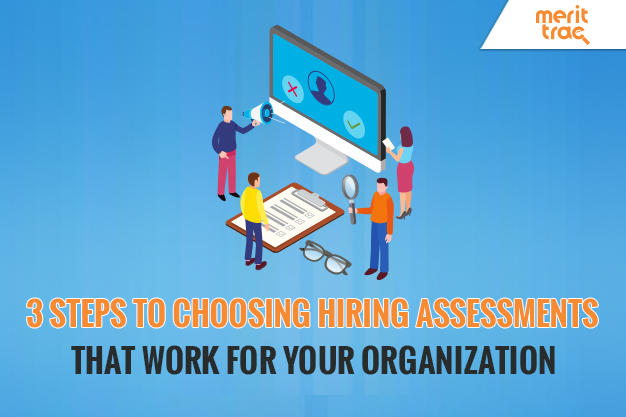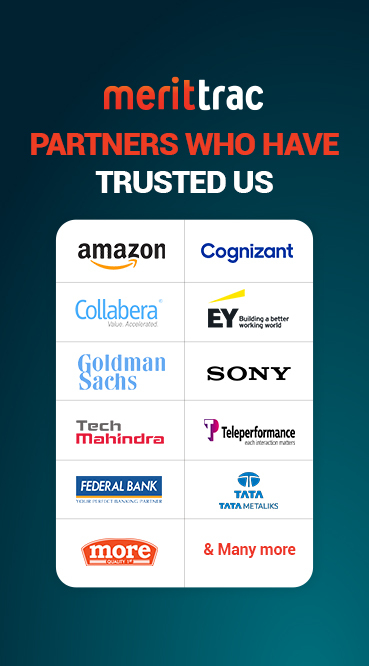
3 Steps to Choosing Hiring Assessments That Work for Your Organization
Date: 05/08/2019 | Posted by: MeritTrac | Category: Assessment , Corporate
Worldwide, firms are spending over $200 billion annually to hire high performing talent. Turn over costs are high and getting the right job fit was never more critical. As organizations compete for diverse top talent, leveraging scientific assessments is becoming a go-to hiring technique for recruiters to de-bias recruitment and hire right-fit candidates. Research shows that effective use of talent assessments can result in increased productivity, cost savings and better retention of top employees. However, merely switching to tech-driven assessment tools is not enough to achieve effective hiring. Following a simple three-step approach can help recruiters identify the right assessment provider with the right assortment of assessment tools in order to maximize ROI.
- Think about why you want to use assessments
It is crucial to answer ‘why’ your organization needs to incorporate modern assessments tools in its talent assessment process. What business goals are you trying to achieve by using assessments? How will the use of assessments benefit your company? Aligning the assessment process with business strategy, organizational culture and contextual factors can help HR leaders eliminate siloed assessment and take a more holistic approach to talent identification. While many businesses currently use assessments to fulfil HR-specific goals such as hiring for a specific project, team or level, there exists a wider opportunity – using assessments for performance evaluation and building a talent pipeline for future initiatives. In a survey of 600 HR professionals conducted by HR.com, 76% respondents said that they use pre-employment assessments for hiring while only 25% said they used them to assess employees for internal mobility.
- Choose assessments based on critical competencies
Once the objectives are clear, it’s easy to conduct a job analysis to figure out the main responsibilities that a specific job entails along with the key skills/competencies required to perform the job. Based on the type of skill set identified, you can choose predictive assessments of high validity. For instance, if the job is highly technical and requires specific skills on a day-to-day basis such as coding, then a domain specific assessment would need to be conducted. If, on the other hand, the candidate is going to assume a customer-facing role, behavioural and communications assessments will be key to evaluating competence. Citigroup is known for conducting an online assessment at the second stage of its recruitment process. The globally renowned brand tests its applicants using either a numerical reasoning test or a logical reasoning test, depending on the nature of the job.
- Partner with an assessment provider with proven expertise
While designing and setting up full-fledged assessment programs, firms can seek the guidance of commercially available assessment experts. However, choosing an effective assessment provider from the sea of commercial assessment firms can be tedious as well as tricky. The process entails checking the validity of the provider’s assessment results as well as evaluating hiring and business outcomes delivered through the assessments. Study shows that when companies base the selection of their top hires on scientific assessments, they report 59% less turnover and 21% increased profitability. Technical integration, quality of assessment reports, customization of assessment programs/tests specific to the needs of the business are some of the critical factors to look into while considering an assessment provider to outsource your assessment process.
With forward looking companies moving beyond profiling individuals to including work context in the assessment process, the talent assessment technology market is expected to grow by as much as 10% over the next few years. Organizations that understand the importance of choosing a relevant assortment of assessments will achieve the most positive hiring and business outcomes with analytics-driven decision making.
Source:
Handpicked Articles for Futher Reading
Relevant Case Studies/Whitepapers:














 Sales Hotline: USA: +1 646 916 0939 / Others: +91 80619 14700
Sales Hotline: USA: +1 646 916 0939 / Others: +91 80619 14700


